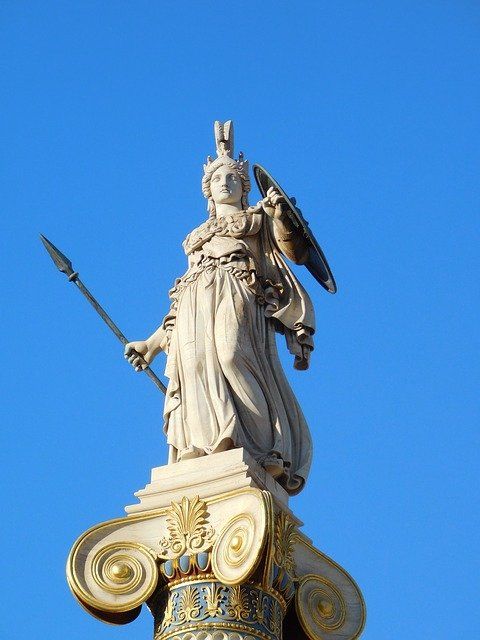
Previous article in this series: Fathers of the Early Church – Part 1 – Why should we take notice?
By the middle of the second century, persecutions against Christians were becoming more frequent. Many false rumours about Christian activity were abroad. In response, a group of Christians wrote ‘apologies’, and have become known as the Apologists. Although they are generally from the generation after the Apostolic Fathers, there was some overlap in time between the two groups.
However, the Apologists had different aims from the Apostolic Fathers. They wrote mainly to address the unbelieving world on behalf of the church. They answered the false accusations that were abroad, and presented both a critique of paganism and an account of the Christian faith, in terms intelligible to people with a background in Greek philosophy. Nevertheless, they had their fellow believers in mind too, and sought to strengthen them in their faith. The Apologists included Aristides, Athenagoras, Justin Martyr, Tatian, Theophilus, and an un-named writer who wrote a letter to someone called Diognetus. Let us take a look at this example of the Apologists’ work.
Dumb idols
The letter to Diognetus was probably written about A.D. 150 in Rome. We cannot be sure who Diognetus was, though some people think that he was the tutor of the young Marcus Aurelius, a future Emperor who was trained in Stoic philosophy. The letter was written to try to gain toleration for Christianity.

It begins by highlighting the folly involved in pagan idolatry. It says that a ‘god’ made of bronze could be melted down and remade into cooking utensils. It points out that an idol made of gold or silver needs constant guarding in case someone tries to steal it, but that what pagans consider to be honouring god (guarding him) is really an insult to any god worthy of the name! The author continues by reminding the pagans that a god made of wood is likely to go rotten, and that all idols are deaf, dumb, blind, soulless, senseless and motionless.
A few chapters later, the author points out also the foolishness of pagan theology, namely, the idea that some component of creation (such as fire or water) could be divine. The writer calls this a ‘deceit of the sorcerers’. Unfortunately, he goes on to ridicule Jewish worship and practice also, failing to distinguish between human inventions and God’s Old Testament revelation. Even though the Old Covenant had been made obsolete by the New (Hebrews 8:13), its provisions still help to illuminate the truths of the gospel.
Christians in the world
There then follows the most splendid section of this letter, in which the author explains the position of Christians in the world. It is worth quoting this passage at length.
‘Christians are not distinguished from the rest of mankind by nation, language, or custom. They do not live apart in separate cities of their own, speaking a strange dialect, nor do they adopt an eccentric way of life … They live in Greek or barbarian cities, following local customs of clothing, diet, and housing. Yet the amazing and admittedly unusual nature of their citizenship is evident.

‘They live as aliens in their homelands, participating as citizens, yet suffering as strangers. For them, every foreign country is a motherland, and their motherland a foreign land. They marry and have children like everyone else, but they do not expose their infants to death. They share their possessions, but do not practise wife-swapping. They live in the flesh, but refuse to define life by reference to the flesh. While they pass their time on earth, their citizenship is in heaven. They obey the law of the land, but their lives transcend mere law. They love everyone, yet everyone persecutes them. They are ignored or condemned, and if they are sentenced to death, they are quickened with life. Although they are poor, they enrich many. Though in great need, they abound in everything…
‘To put it in a nutshell; what the soul is in the body, so are Christians in the world. The soul is dispersed through every part of the body, and Christians throughout all the cities of the world. The soul inhabits the body but is not part of the body, and Christians inhabit the world but are not of the world.
‘The soul is invisible, hidden in a body, and while Christians in the world are recognisable, their spirituality remains invisible. The soul hinders the satisfaction of fleshly lusts, and therefore the flesh hates it and wages war on it, even though the soul has done the flesh no wrong; similarly, although Christians have done the world no wrong, the world hates them just because they oppose worldly pleasures.
‘The soul loves the flesh which hates it, and Christians love those who hate them. Despite being confined within the body, it is the soul which keeps the body together; and Christians are imprisoned in the world, yet the world’s integration is due to them. The immortal soul lives in a mortal body, and Christians are merely temporary residents in a passing world, waiting expectantly for the permanence of heaven. The soul is trained when deprived of food and drink, and constant persecution of Christians results in their steady growth’.
Not quaint or odd
There is much that we can learn from this writer’s approach. Just what is it to live authentically as a Christian in the present world? It does not involve being quaint or odd. It does mean real commitment to the life of our community, but at the same time a certain detachment, which comes from knowing that ‘our citizenship is in heaven’ (Philippians 3:20). It entails a radical rejection of the sins of our time, and yet a passionate love for our fellow sinners who are as yet unsaved.

The letter to Diognetus also helps us in considering how we should conduct ourselves when we are accused and persecuted by those who oppose the gospel. The writer stresses the duty and joy of non-retaliation and sincere love for those who try to make life difficult for us. He has certainly caught the spirit of Jesus’ challenge to his followers, ‘Love your enemies, bless those who persecute you, do good to those who hate you, and pray for those who spitefully use you and persecute you’ (Matthew 5:44). Our writer also sees divine purpose in the afflictions of believers. To suffer is to be trained and to grow. This is wholly in tune with the teaching on chastening in the twelfth chapter of Hebrews, a book similarly concerned with the reactions of believers to pressure from unbelieving neighbours. Verse 10 reminds us that God chastens us (through persecution, partly) ‘for our profit, that we may be partakers of his holiness’. What a difference it would make if all believers truly lived out the magnificent description, provided by this ancient work, of the Christian in the world.
Grace alone
The author then goes on to argue that Christianity is a revealed religion. For God sent into the world ‘the very Designer and Creator of the universe’, by whom he made all things, and to whose providence all things are subject. He was not sent in tyranny, fear and terror, for God works by love and grace, not brute force. In the person of his Son, Jesus Christ, he took our sins upon himself. He gave his Son as a ransom for us. The writer celebrates the truth of justification by grace alone in the following words.
‘For what else could cover our sins, except his righteousness? In whom could our lawless and ungodly humanity be justified, except in the only Son of God? O the sweet exchange! O the unsearchable work! O the unsolicited kindness! That the wickedness of many should be hidden in one righteous Man, that the righteousness of the One should justify many lawless people!’
The letter concludes with a definition of true happiness as selfless love of others. I hope, like me, you have been able to sense the joy of this treasure of early Christian writing, and thrill to its Christ-centredness and scriptural integrity.
The third article in this series is available here: Fathers of the Early Church – Part 3 – Eusebius









